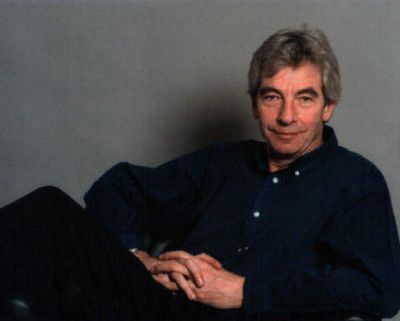Fast start

The Spokane Symphony waltzes into its 60th season Friday night with two waltz-based orchestral showpieces and a rip-snorting virtuoso piano concerto.
“For me, opening night should be something brilliant,” says Music Director Eckart Preu, who will conduct the “Inspired by Dance” program.
“For Friday’s opening night, I wanted something flashy that shows off the orchestra and shows off the soloist, then everyone can go home happy.”
To show off the orchestra, Preu chose Richard Strauss’ Suite from his opera “Der Rosenkavalier” and Maurice Ravel’s “La Valse.”
And to show off the soloist – French pianist Jean-Philippe Collard – he and Collard selected Sergei Rachmaninoff’s Piano Concerto No. 3.
“The Strauss and the Ravel have the same starting point with the Viennese waltz, but the two of them go in two different directions,” Preu says.
“Strauss has kind of a sophisticated-naive approach to the waltz,” he says. “That approach comes out of ‘Der Rosenkavalier,’ with its combination of Mozart-like lightness and seriousness.
“But Ravel has a kind of ‘Titanic’ approach to waltz culture where people are dancing themselves to death. Whether the dancers know that or not is a question we have to ask ourselves.”
Asked how Rachmaninoff’s Piano Concerto No. 3 fits in with the program’s title, Preu laughs, then admits: “It doesn’t. If you’re generous, you can think, ‘Well, it was composed during the same time frame as `Der Rosenkavalier’ and ‘La Valse.’
“But the main thing is the contrast with the waltz pieces, which is the reason it’s separated from them by intermission. We have one of the world’s most brilliant pianists for the most brilliant and most famous of piano concertos.”
Friday’s concert marks Collard’s first appearance in Spokane. The pianist was born in the Champagne region of France and studied at the Paris Conservatory, where he won a first prize in piano performance at 16.
After a succession of prizes in international competitions, Collard made his U.S. debut in 1973. He has since toured extensively and made more than 50 recordings on the EMI label including complete recordings of Ravel’s concertos and piano solo music, the complete chamber music of Faure and complete piano concertos of Saint-Saens.
Collard and Preu will discuss the career of a piano virtuoso and the Rachmaninoff concerto at Classical Chats, the symphony’s pre-performance conversation, today at 12:15 p.m. in the council chambers at Spokane City Hall. The 30-minute program will be televised on City Cable Channel 5.
Preu also will discuss the music on the program as a part of the Gladys Brooks Pre-Concert Talks series in the Opera House auditorium on Friday at 7 p.m.
As Preu begins his second season in Spokane, he starts his first season as conductor of the Stamford Symphony Orchestra in Connecticut. He was appointed to the Stamford post this summer.
“Stamford is a very interesting orchestra,” Preu says. “It is a Connecticut orchestra, but its players are all from New York – you look down the list of players and you see people who play in the Metropolitan, the Orpheus Chamber Orchestra, the American Symphony, the Orchestra of St. Luke’s and so on.
“Even the rehearsals, except for the dress rehearsal, are held in New York. It is a small orchestra varying between 40 and 60 players, but the quality of performances is very high.”
Given his new obligations, Preu has not scheduled any guest conducting appearances elsewhere this season.
“I will be here 36 weeks and in Stamford 10 weeks and that leaves me with only a little time for recuperation and study, so I have enough on my plate,” he says.
“I think it is very important for me to be rooted here so I don’t become just a typical jet-setting conductor. I don’t like that and I can’t deal with that kind of life.”
After Friday’s opener, the remaining 35 weeks Preu spends in Spokane will bring some unusual music alongside traditional symphonic fare.
In addition to the Classics and SuperPops concerts in the Opera House and the chamber orchestra concerts in The Met, the symphony will play two Symphony on the Edge concerts in The Big Easy nightclub. That continues a new tradition begun with a single Big Easy concert last October.
In November, the monthlong presence of the touring Broadway show “The Lion King” will exile the symphony from the Opera House.
But the orchestra, along with vocal soloists and two choruses – more than 200 performers in all – will present Howard Shore’s blockbuster “Lord of the Rings Symphony” in the Spokane Arena on Nov. 12.
“I think our audience is going to love ‘The Lord of the Rings Symphony,’ ” Preu says. “I conducted a short excerpt from it, and I loved it, too. There will be two or three hundred performers along with the visuals – it will have quite an impact.”
In March, opera will return to the Opera House stage with the symphony’s performance of Verdi’s “Rigoletto.”
“I am very excited about working again with the stage director Jeffrey Sichel,” Preu says. “He and I have done Mozart’s ‘Marriage of Figaro’ and ‘Don Giovanni’ and Philip Glass’ ‘L’Enfant Terrible’ together.
“Sichel has a very imaginative way of using very simple means of producing great staging effects, often using textures he achieves by lighting and fabric. Besides, ‘Rigoletto’ is the kind of opera even a novice listener can easily appreciate.”
As during his first season, Preu will share some of the conducting duties with Associate Conductor Morihiko Nakahara, who also has another orchestra in the Holland (Mich.) Symphony. Nakahara will conduct one of the Classic concerts, three of the SuperPops and one each of the Met and Symphony on the Edge programs.
“All of our concerts this season offer different attractions and present different challenges to the musicians and to me as a conductor,” Preu says. “I’m looking forward to each one of the concerts and those challenges.”